HUMANITARIAN FOOD AID
입력 2019.05.09 (15:00)
수정 2019.05.09 (16:47)
읽어주기 기능은 크롬기반의
브라우저에서만 사용하실 수 있습니다.
[Anchor Lead]
The South Korean government has officially announced its decision to push for sending humanitarian food aid to North Korea. However, it's unclear if the North will accept the aid, as it is strongly demanding the easing of the sanctions as a prerequisite for denuclearization talks.
[Pkg]
Three days after North Korea's launch of short-range projectiles, the leaders of South Korea and the United States had a phone conversation and agreed that the North needed humanitarian food aid. The South Korean government has officially announced that it will push forward a plan to provide food aid to North Korea in close cooperation with the international community.
[Soundbite] KIM YEON-CHUL(MINISTER OF UNIFICATION) : "The Ministry of Unification will convene a meeting to discuss what should be done regarding the agreement between the two presidents."
The issue of humanitarian aid will be discussed in detail at the upcoming working group talks between South Korean and U.S. officials. The most likely method of sending food aid to the North is via an international organization. Seoul may also consider providing the aid directly in a bid to resume inter-Korean dialogue. International organizations such as the United Nations World Food Programme said recently that North Korea is facing the worst food crisis of the past ten years. This year, food shortages in the North have surpassed 1.3 million tons. In other words, 40 percent of the North Korean population, or more than 10 million people, do not have enough food to eat.
[Soundbite] MARIO ZAPPACOSTA(U.N. FOOD AND AGRICULTURE ORGANIZATION)
However, it's unclear if North Korea will accept food aid or return to the negotiating table, as Pyongyang keeps demanding that sanctions against the North be eased as a precondition for the denuclearization talks.
[Soundbite] CHOI KANG(ASAN INSTITUTE FOR POLICY STUDIES) : "The issue of humanitarian aid is highly likely to be handled separately from the issue of nuclear weapons and missiles. It's unlikely that this will lead to the resumption of dialogue right away, but will rather be an opportunity to figure out what to do next."
The negative public opinion about North Korea's recent firing of projectiles will also affect the decision whether or not to send food aid to the North.
The South Korean government has officially announced its decision to push for sending humanitarian food aid to North Korea. However, it's unclear if the North will accept the aid, as it is strongly demanding the easing of the sanctions as a prerequisite for denuclearization talks.
[Pkg]
Three days after North Korea's launch of short-range projectiles, the leaders of South Korea and the United States had a phone conversation and agreed that the North needed humanitarian food aid. The South Korean government has officially announced that it will push forward a plan to provide food aid to North Korea in close cooperation with the international community.
[Soundbite] KIM YEON-CHUL(MINISTER OF UNIFICATION) : "The Ministry of Unification will convene a meeting to discuss what should be done regarding the agreement between the two presidents."
The issue of humanitarian aid will be discussed in detail at the upcoming working group talks between South Korean and U.S. officials. The most likely method of sending food aid to the North is via an international organization. Seoul may also consider providing the aid directly in a bid to resume inter-Korean dialogue. International organizations such as the United Nations World Food Programme said recently that North Korea is facing the worst food crisis of the past ten years. This year, food shortages in the North have surpassed 1.3 million tons. In other words, 40 percent of the North Korean population, or more than 10 million people, do not have enough food to eat.
[Soundbite] MARIO ZAPPACOSTA(U.N. FOOD AND AGRICULTURE ORGANIZATION)
However, it's unclear if North Korea will accept food aid or return to the negotiating table, as Pyongyang keeps demanding that sanctions against the North be eased as a precondition for the denuclearization talks.
[Soundbite] CHOI KANG(ASAN INSTITUTE FOR POLICY STUDIES) : "The issue of humanitarian aid is highly likely to be handled separately from the issue of nuclear weapons and missiles. It's unlikely that this will lead to the resumption of dialogue right away, but will rather be an opportunity to figure out what to do next."
The negative public opinion about North Korea's recent firing of projectiles will also affect the decision whether or not to send food aid to the North.
■ 제보하기
▷ 카카오톡 : 'KBS제보' 검색, 채널 추가
▷ 전화 : 02-781-1234, 4444
▷ 이메일 : kbs1234@kbs.co.kr
▷ 유튜브, 네이버, 카카오에서도 KBS뉴스를 구독해주세요!
- HUMANITARIAN FOOD AID
-
- 입력 2019-05-09 15:01:26
- 수정2019-05-09 16:47:58
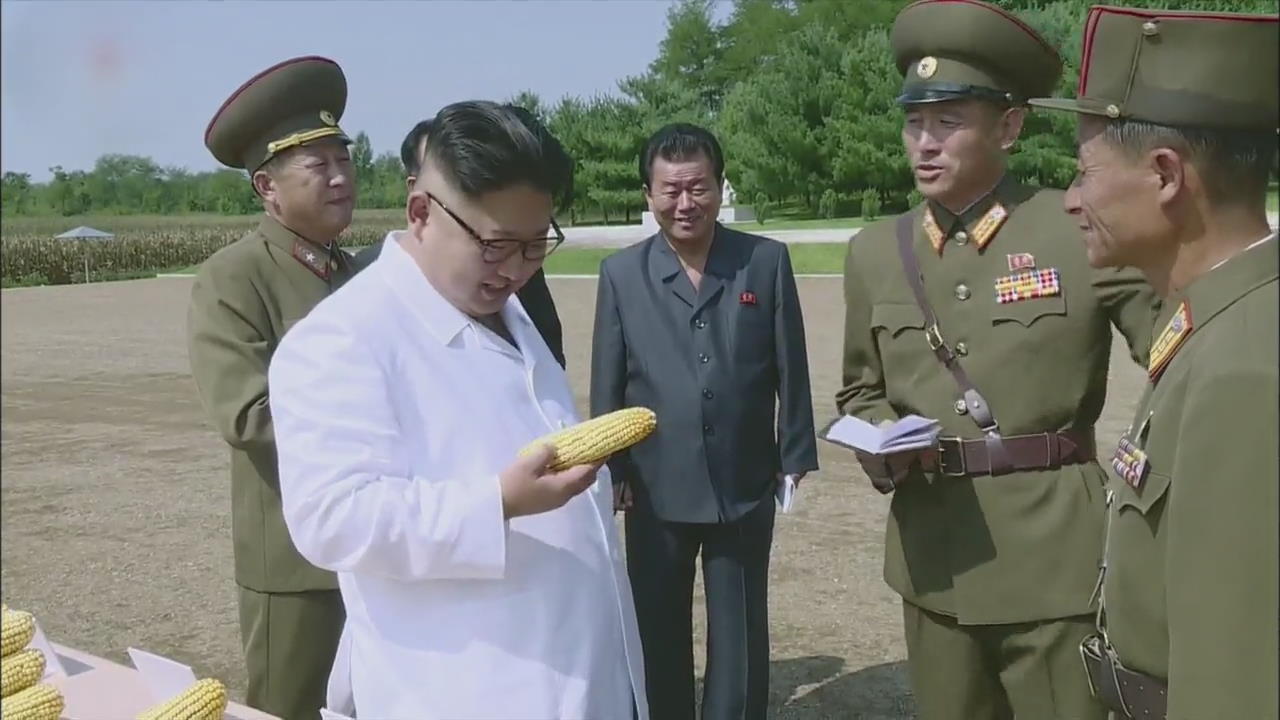
[Anchor Lead]
The South Korean government has officially announced its decision to push for sending humanitarian food aid to North Korea. However, it's unclear if the North will accept the aid, as it is strongly demanding the easing of the sanctions as a prerequisite for denuclearization talks.
[Pkg]
Three days after North Korea's launch of short-range projectiles, the leaders of South Korea and the United States had a phone conversation and agreed that the North needed humanitarian food aid. The South Korean government has officially announced that it will push forward a plan to provide food aid to North Korea in close cooperation with the international community.
[Soundbite] KIM YEON-CHUL(MINISTER OF UNIFICATION) : "The Ministry of Unification will convene a meeting to discuss what should be done regarding the agreement between the two presidents."
The issue of humanitarian aid will be discussed in detail at the upcoming working group talks between South Korean and U.S. officials. The most likely method of sending food aid to the North is via an international organization. Seoul may also consider providing the aid directly in a bid to resume inter-Korean dialogue. International organizations such as the United Nations World Food Programme said recently that North Korea is facing the worst food crisis of the past ten years. This year, food shortages in the North have surpassed 1.3 million tons. In other words, 40 percent of the North Korean population, or more than 10 million people, do not have enough food to eat.
[Soundbite] MARIO ZAPPACOSTA(U.N. FOOD AND AGRICULTURE ORGANIZATION)
However, it's unclear if North Korea will accept food aid or return to the negotiating table, as Pyongyang keeps demanding that sanctions against the North be eased as a precondition for the denuclearization talks.
[Soundbite] CHOI KANG(ASAN INSTITUTE FOR POLICY STUDIES) : "The issue of humanitarian aid is highly likely to be handled separately from the issue of nuclear weapons and missiles. It's unlikely that this will lead to the resumption of dialogue right away, but will rather be an opportunity to figure out what to do next."
The negative public opinion about North Korea's recent firing of projectiles will also affect the decision whether or not to send food aid to the North.
The South Korean government has officially announced its decision to push for sending humanitarian food aid to North Korea. However, it's unclear if the North will accept the aid, as it is strongly demanding the easing of the sanctions as a prerequisite for denuclearization talks.
[Pkg]
Three days after North Korea's launch of short-range projectiles, the leaders of South Korea and the United States had a phone conversation and agreed that the North needed humanitarian food aid. The South Korean government has officially announced that it will push forward a plan to provide food aid to North Korea in close cooperation with the international community.
[Soundbite] KIM YEON-CHUL(MINISTER OF UNIFICATION) : "The Ministry of Unification will convene a meeting to discuss what should be done regarding the agreement between the two presidents."
The issue of humanitarian aid will be discussed in detail at the upcoming working group talks between South Korean and U.S. officials. The most likely method of sending food aid to the North is via an international organization. Seoul may also consider providing the aid directly in a bid to resume inter-Korean dialogue. International organizations such as the United Nations World Food Programme said recently that North Korea is facing the worst food crisis of the past ten years. This year, food shortages in the North have surpassed 1.3 million tons. In other words, 40 percent of the North Korean population, or more than 10 million people, do not have enough food to eat.
[Soundbite] MARIO ZAPPACOSTA(U.N. FOOD AND AGRICULTURE ORGANIZATION)
However, it's unclear if North Korea will accept food aid or return to the negotiating table, as Pyongyang keeps demanding that sanctions against the North be eased as a precondition for the denuclearization talks.
[Soundbite] CHOI KANG(ASAN INSTITUTE FOR POLICY STUDIES) : "The issue of humanitarian aid is highly likely to be handled separately from the issue of nuclear weapons and missiles. It's unlikely that this will lead to the resumption of dialogue right away, but will rather be an opportunity to figure out what to do next."
The negative public opinion about North Korea's recent firing of projectiles will also affect the decision whether or not to send food aid to the North.
이 기사가 좋으셨다면
-
좋아요
0
-
응원해요
0
-
후속 원해요
0










![[HEADLINE]](https://news.kbs.co.kr/data/news/2019/05/09/4197454_10.jpg)
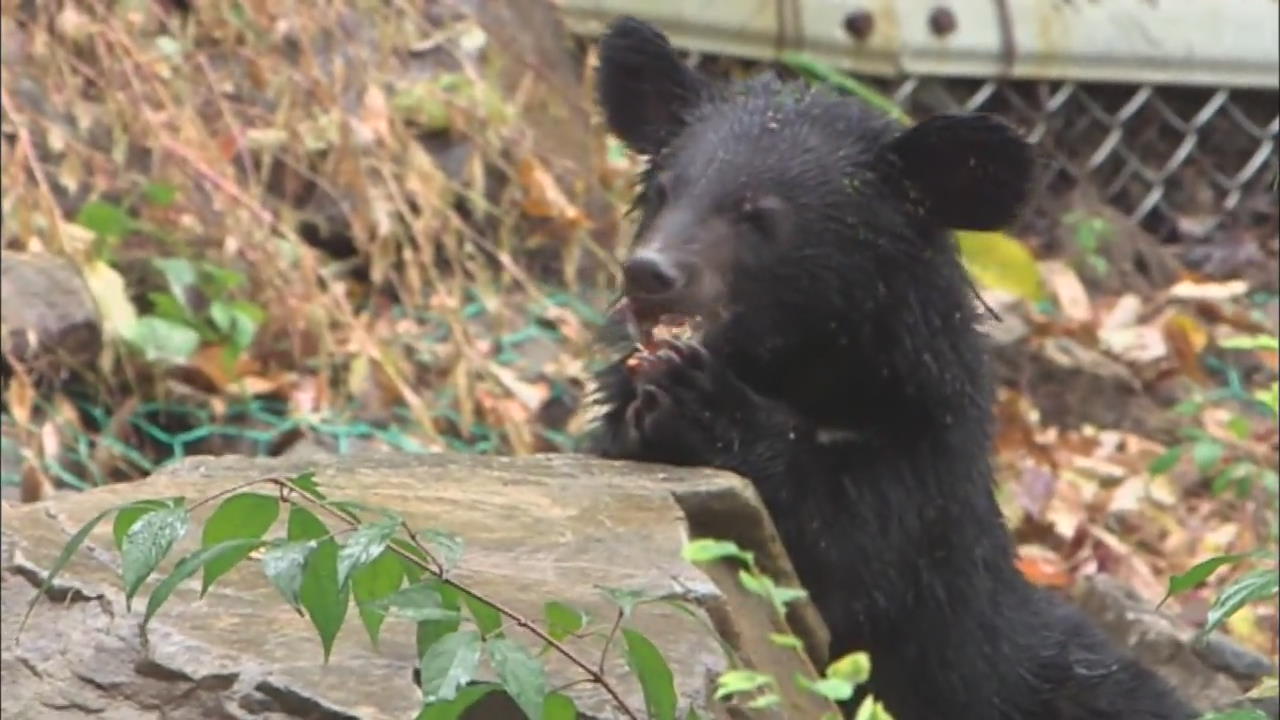
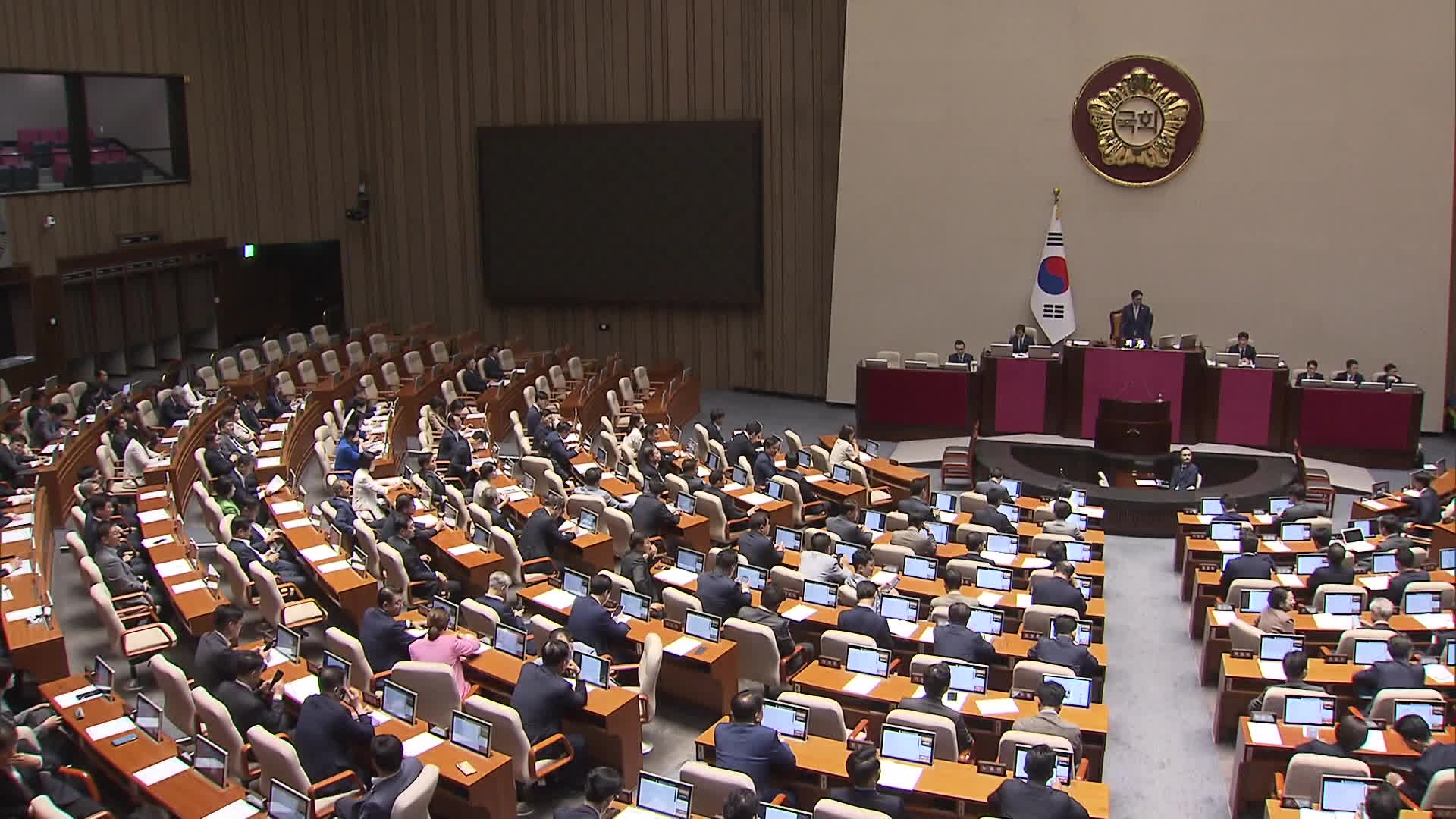
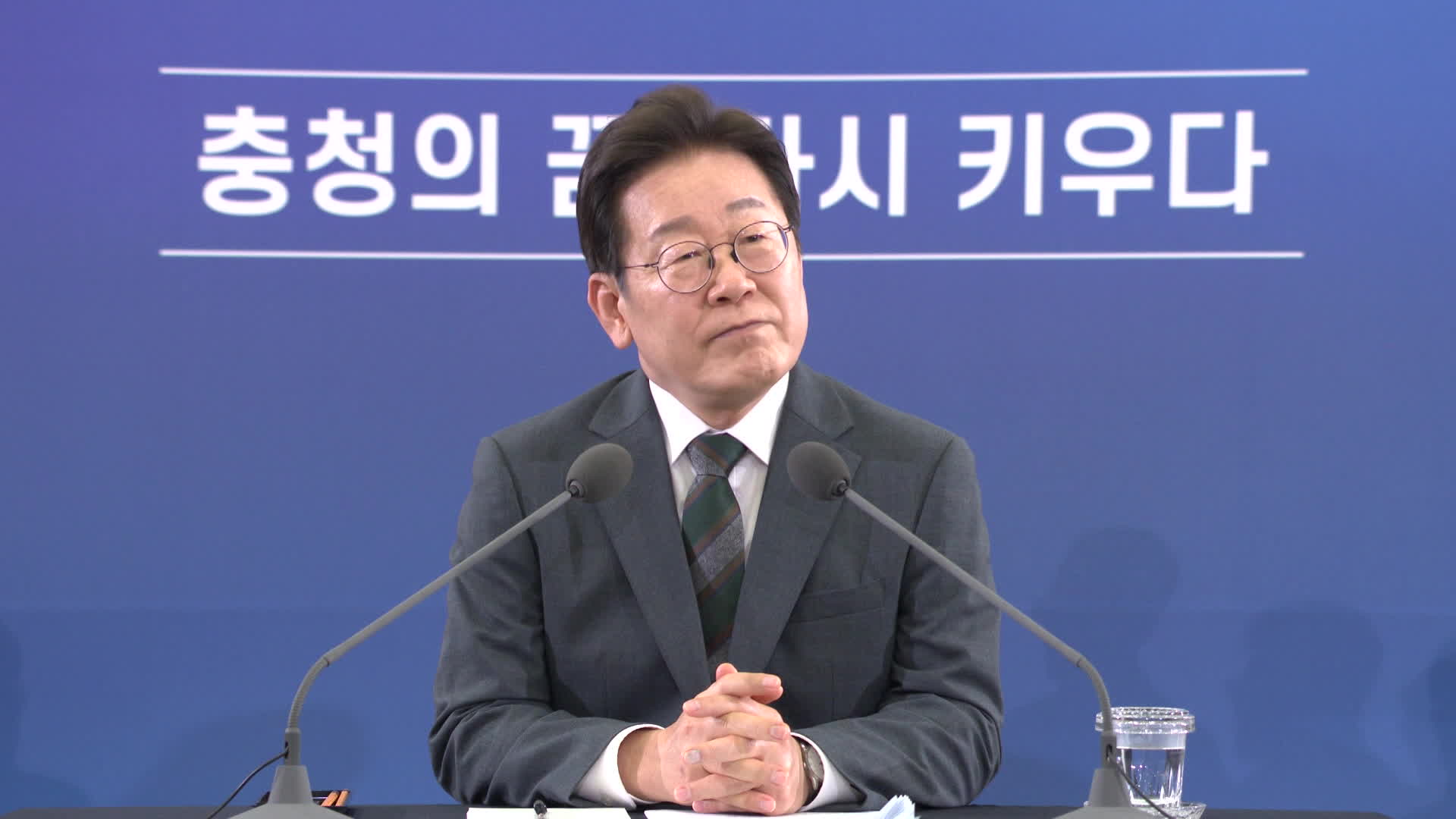
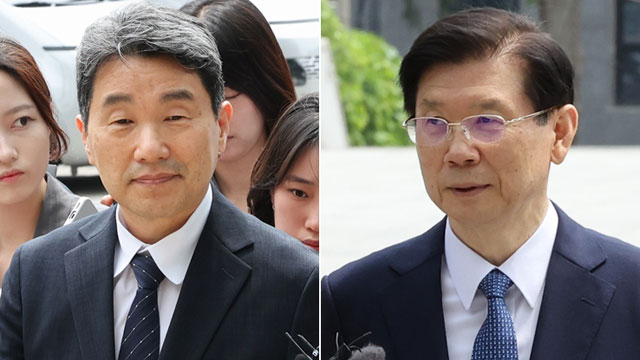
![[단독] “이 대통령, 주요국에 특사파견 예정…미·일 특사 막판 조율”](/data/layer/904/2025/07/20250704_DNItCk.jpg)

이 기사에 대한 의견을 남겨주세요.